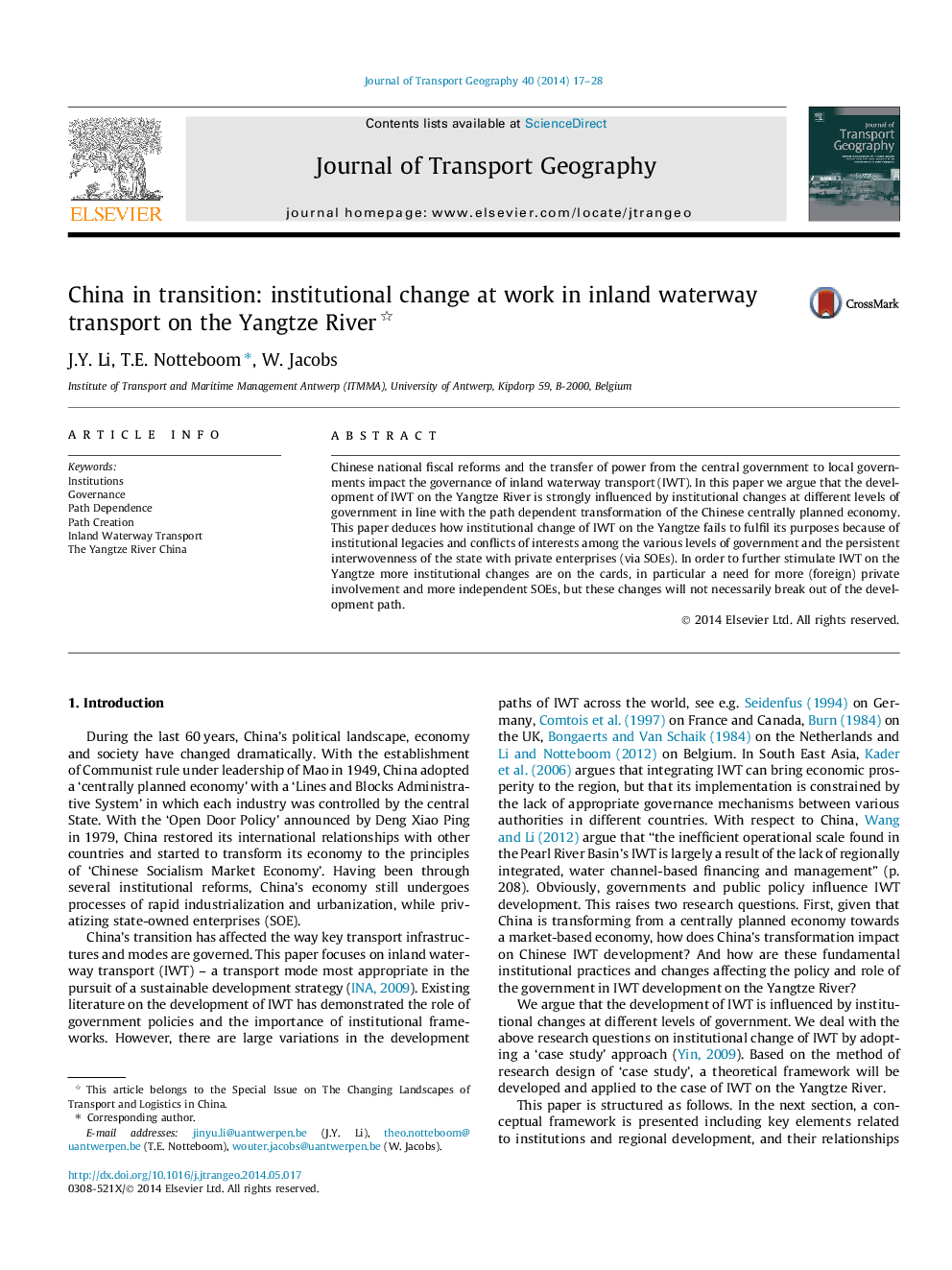| Article ID | Journal | Published Year | Pages | File Type |
|---|---|---|---|---|
| 1059050 | Journal of Transport Geography | 2014 | 12 Pages |
•We present a conceptual framework on the role of institutional change in governance reform.•The framework is applied to a case study of inland waterway transport (IWT) on the Yangtze.•Despite reforms, institutional designs still fail to fulfil their purposes.•Mainly caused by Institutional legacies and conflicts of interests among levels of government.•Need for more (foreign) private involvement and more independent SOEs.
Chinese national fiscal reforms and the transfer of power from the central government to local governments impact the governance of inland waterway transport (IWT). In this paper we argue that the development of IWT on the Yangtze River is strongly influenced by institutional changes at different levels of government in line with the path dependent transformation of the Chinese centrally planned economy. This paper deduces how institutional change of IWT on the Yangtze fails to fulfil its purposes because of institutional legacies and conflicts of interests among the various levels of government and the persistent interwovenness of the state with private enterprises (via SOEs). In order to further stimulate IWT on the Yangtze more institutional changes are on the cards, in particular a need for more (foreign) private involvement and more independent SOEs, but these changes will not necessarily break out of the development path.
